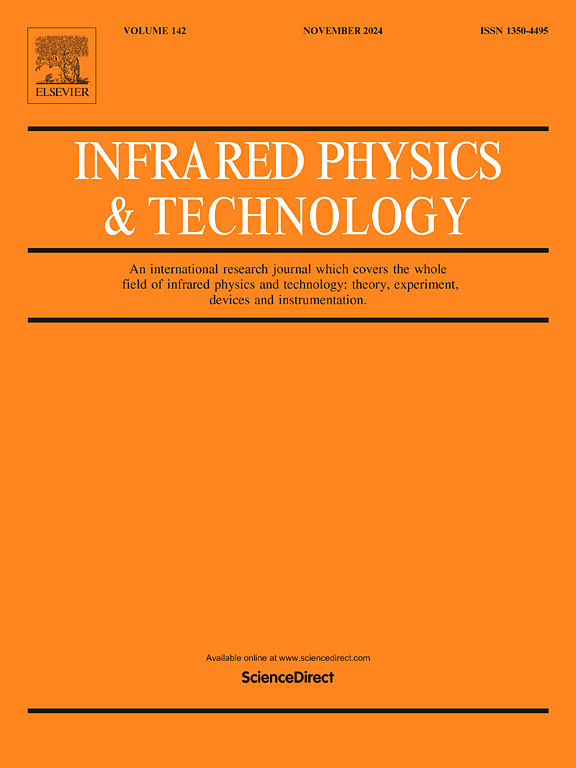使用堆叠去噪卷积自动编码器进行时间去噪和深度特征学习,以增强热成像中的缺陷检测能力
IF 3.1
3区 物理与天体物理
Q2 INSTRUMENTS & INSTRUMENTATION
引用次数: 0
摘要
热波成像利用物体表面的时间温度分布进行地下分析。然而,实验过程中产生的噪声会破坏这种时间历史,阻碍缺陷特征的检测。由于对时间热历史进行去噪可提高缺陷检测能力,本研究在频率调制热波成像中提供了叠加去噪卷积自动编码器(SDCAE),该编码器具有一维卷积层,可减少时间热演变中的噪声,并训练高级特征,从而改善缺陷特征。对不同深度不同尺寸缺陷的低碳钢和碳纤维增强聚合物试样的实验结果表明,将时间去噪和深度特征学习技术整合到一个新框架中,可显著提高缺陷的可探测性。此外,与传统的自动编码器和降维技术相比,拟议模型的去噪热数据和潜空间的缺陷信噪比证明了拟议方法的优越性。本文章由计算机程序翻译,如有差异,请以英文原文为准。
Temporal denoising and deep feature learning for enhanced defect detection in thermography using stacked denoising convolution autoencoder
Thermal wave imaging uses the temporal temperature distribution over the object’s surface for subsurface analysis. However, the noise generated during experimentation corrupts this temporal history and hampers the detection of defect signatures. As denoising of the temporal thermal history enhances the defect detectability, this study offers a Stacked Denoising Convolution Autoencoder (SDCAE) in frequency-modulated thermal wave imaging with one-dimensional convolution layers to reduce noise in temporal thermal evolution and train high-level features resulting in improved defect signs. Experimental results on mild steel and carbon fiber reinforced polymer specimens with different sizes of defects at various depths demonstrate that integrating temporal denoising and deep feature learning techniques into a single novel framework significantly improved defect detectability. In addition, defect signal-to-noise ratios of the denoised thermal data and latent space of the proposed model compared to conventional autoencoder and dimensionality reduction techniques recommend the superiority of the proposed method.
求助全文
通过发布文献求助,成功后即可免费获取论文全文。
去求助
来源期刊
CiteScore
5.70
自引率
12.10%
发文量
400
审稿时长
67 days
期刊介绍:
The Journal covers the entire field of infrared physics and technology: theory, experiment, application, devices and instrumentation. Infrared'' is defined as covering the near, mid and far infrared (terahertz) regions from 0.75um (750nm) to 1mm (300GHz.) Submissions in the 300GHz to 100GHz region may be accepted at the editors discretion if their content is relevant to shorter wavelengths. Submissions must be primarily concerned with and directly relevant to this spectral region.
Its core topics can be summarized as the generation, propagation and detection, of infrared radiation; the associated optics, materials and devices; and its use in all fields of science, industry, engineering and medicine.
Infrared techniques occur in many different fields, notably spectroscopy and interferometry; material characterization and processing; atmospheric physics, astronomy and space research. Scientific aspects include lasers, quantum optics, quantum electronics, image processing and semiconductor physics. Some important applications are medical diagnostics and treatment, industrial inspection and environmental monitoring.

 求助内容:
求助内容: 应助结果提醒方式:
应助结果提醒方式:


